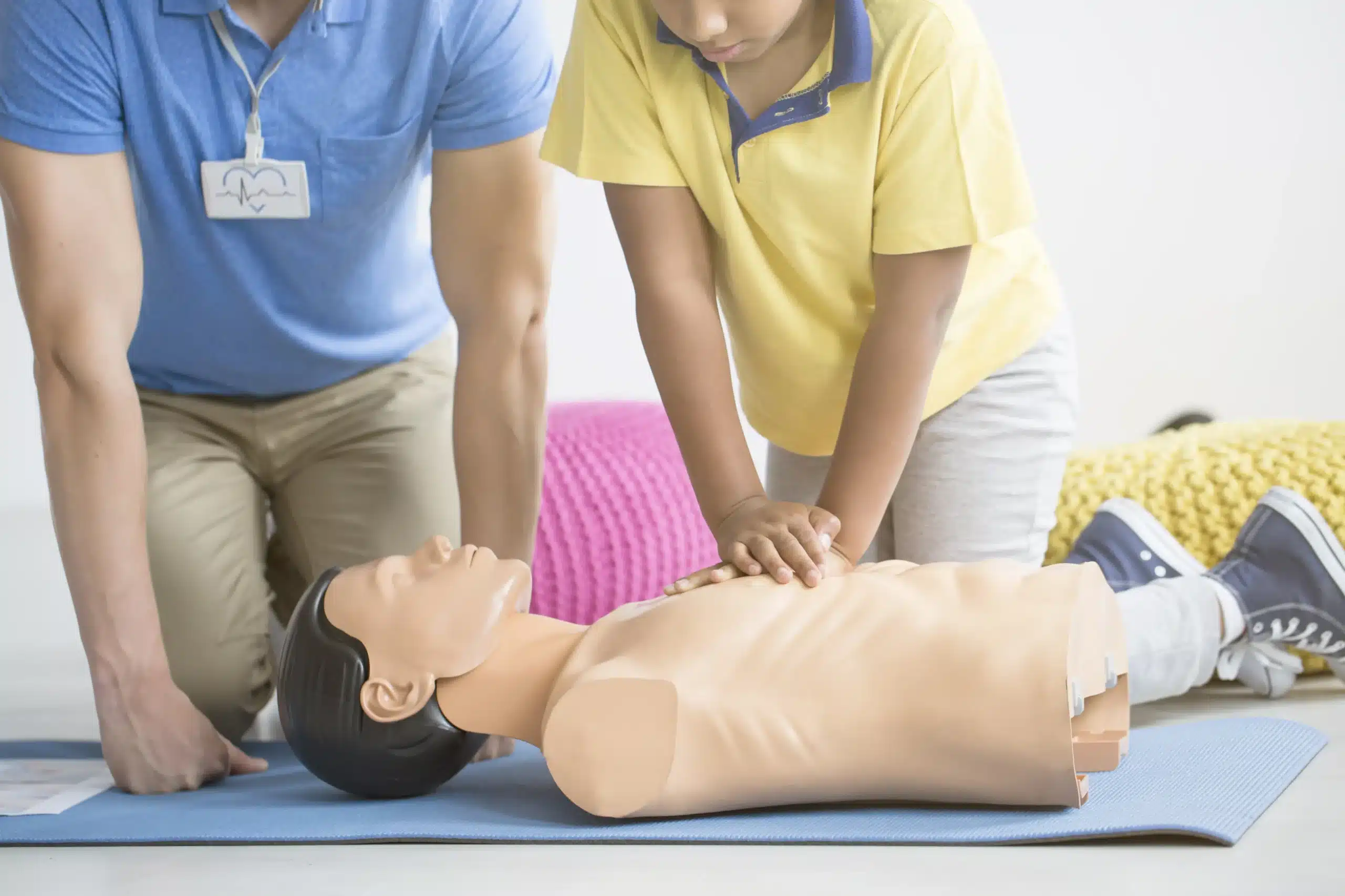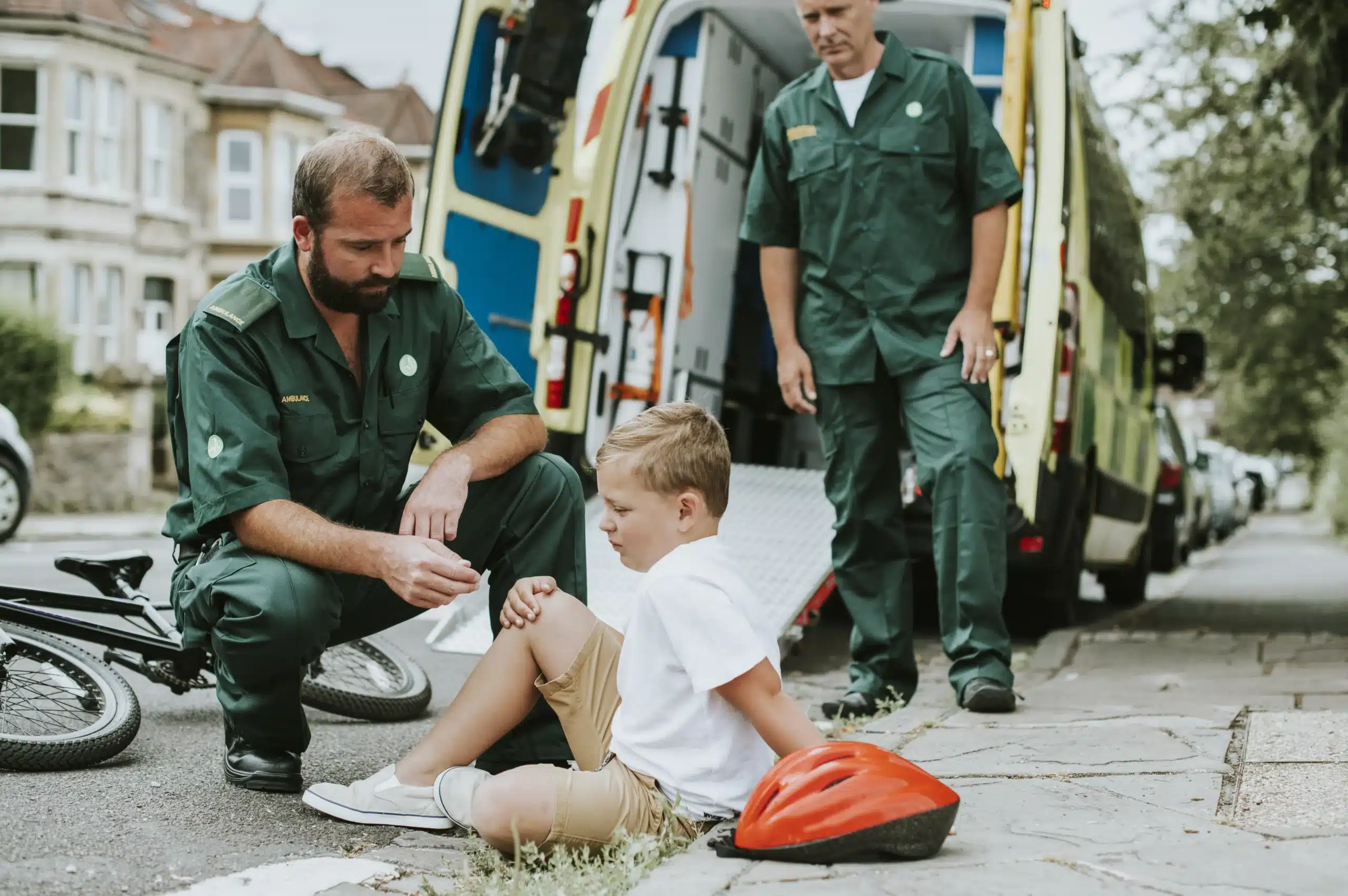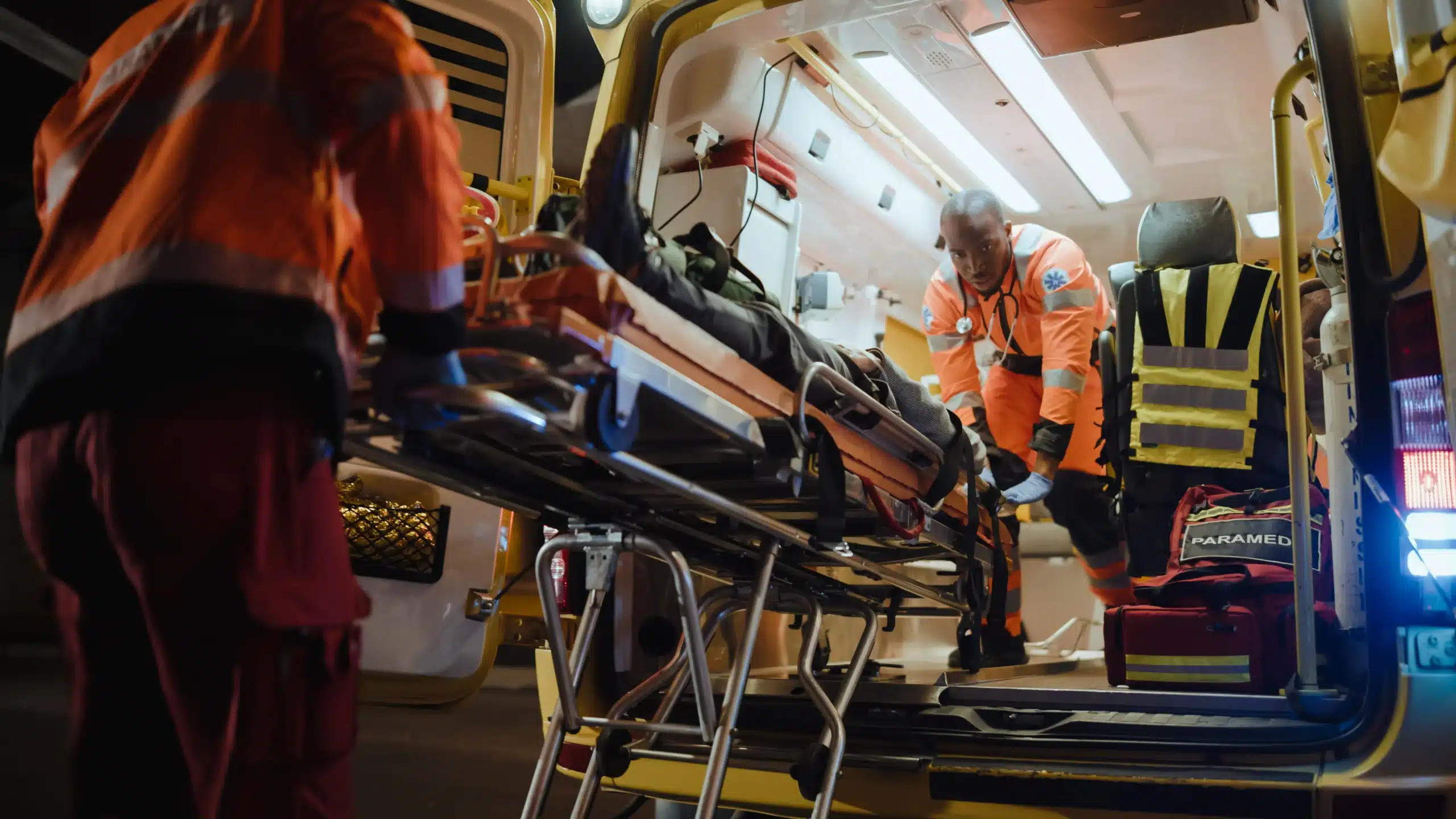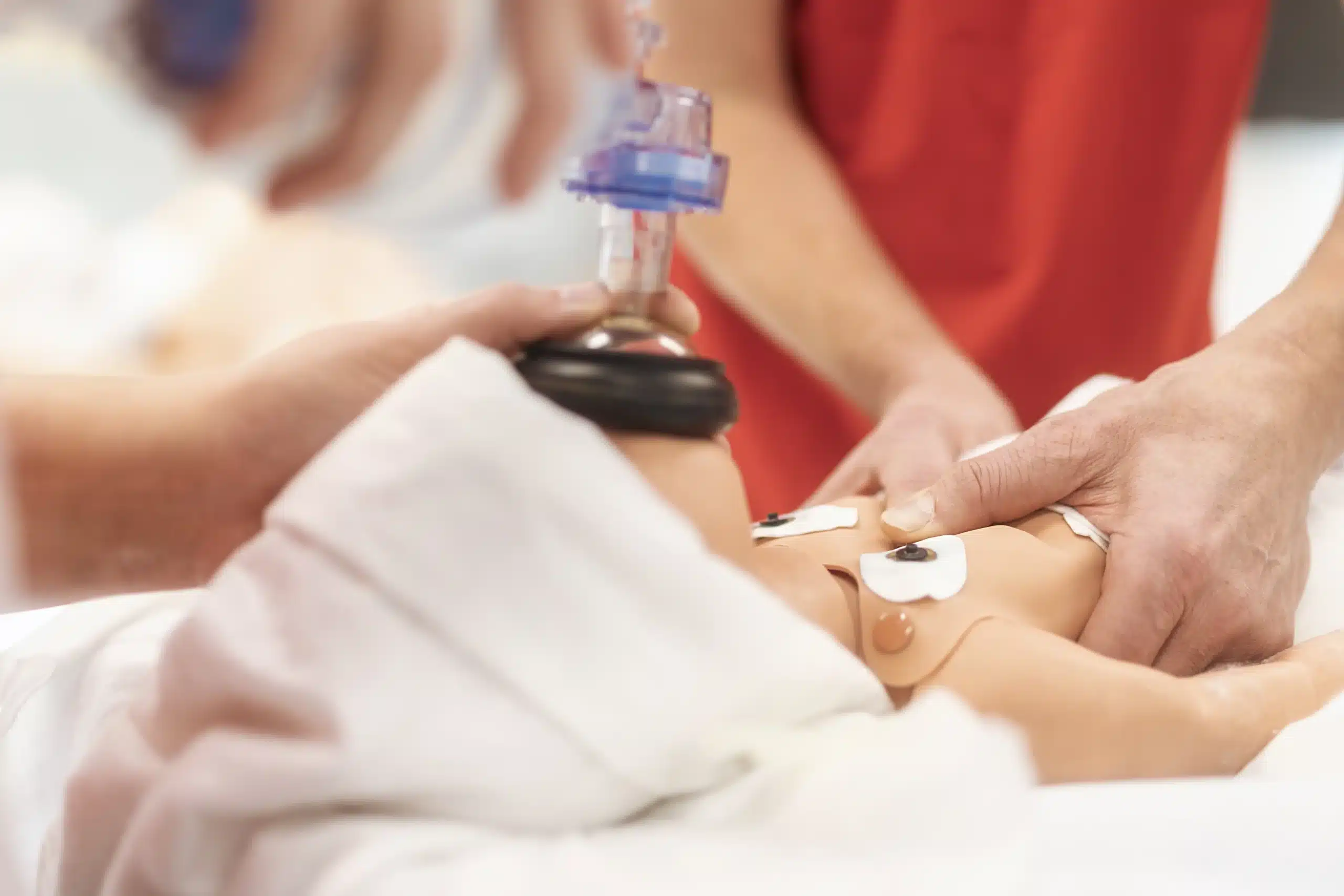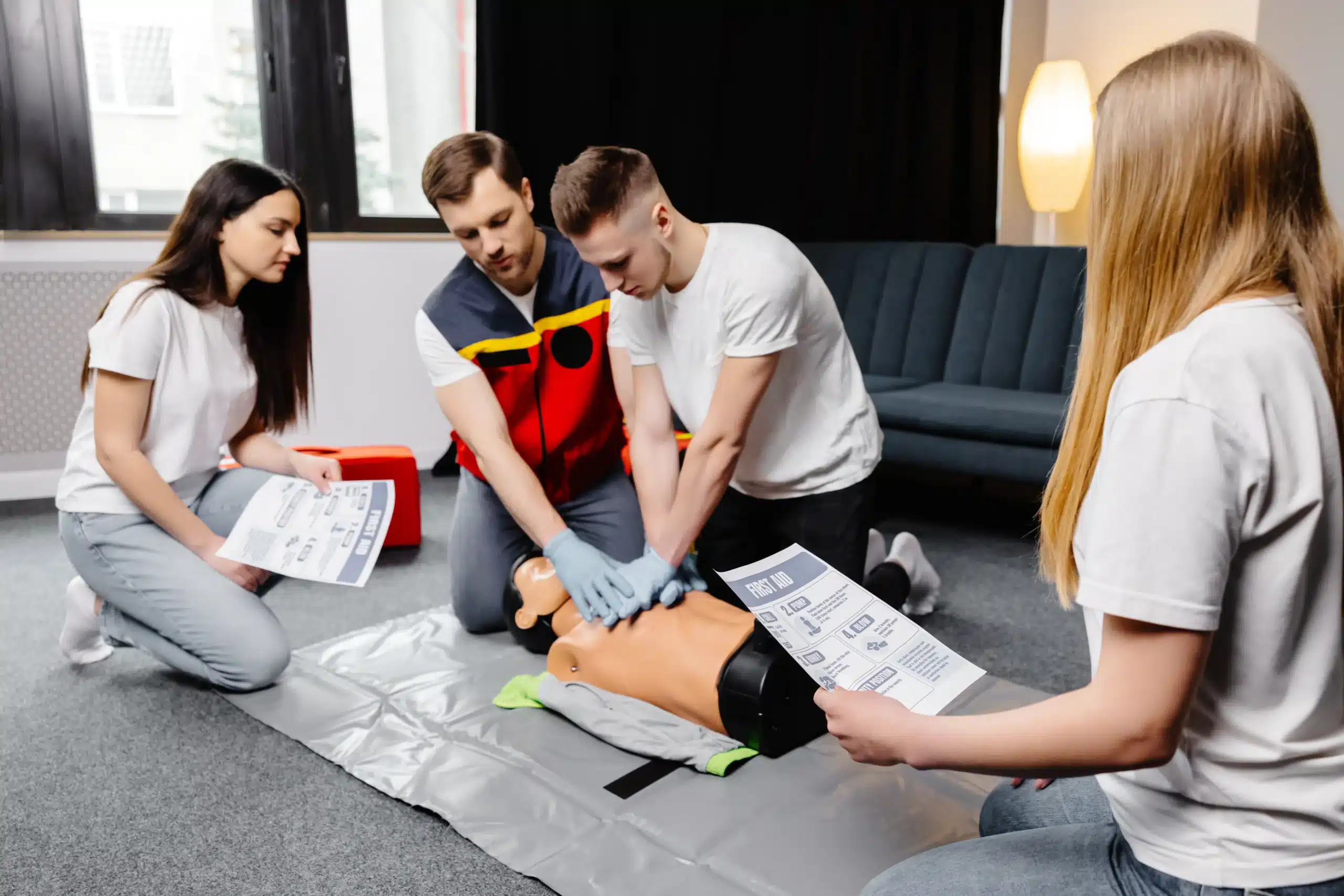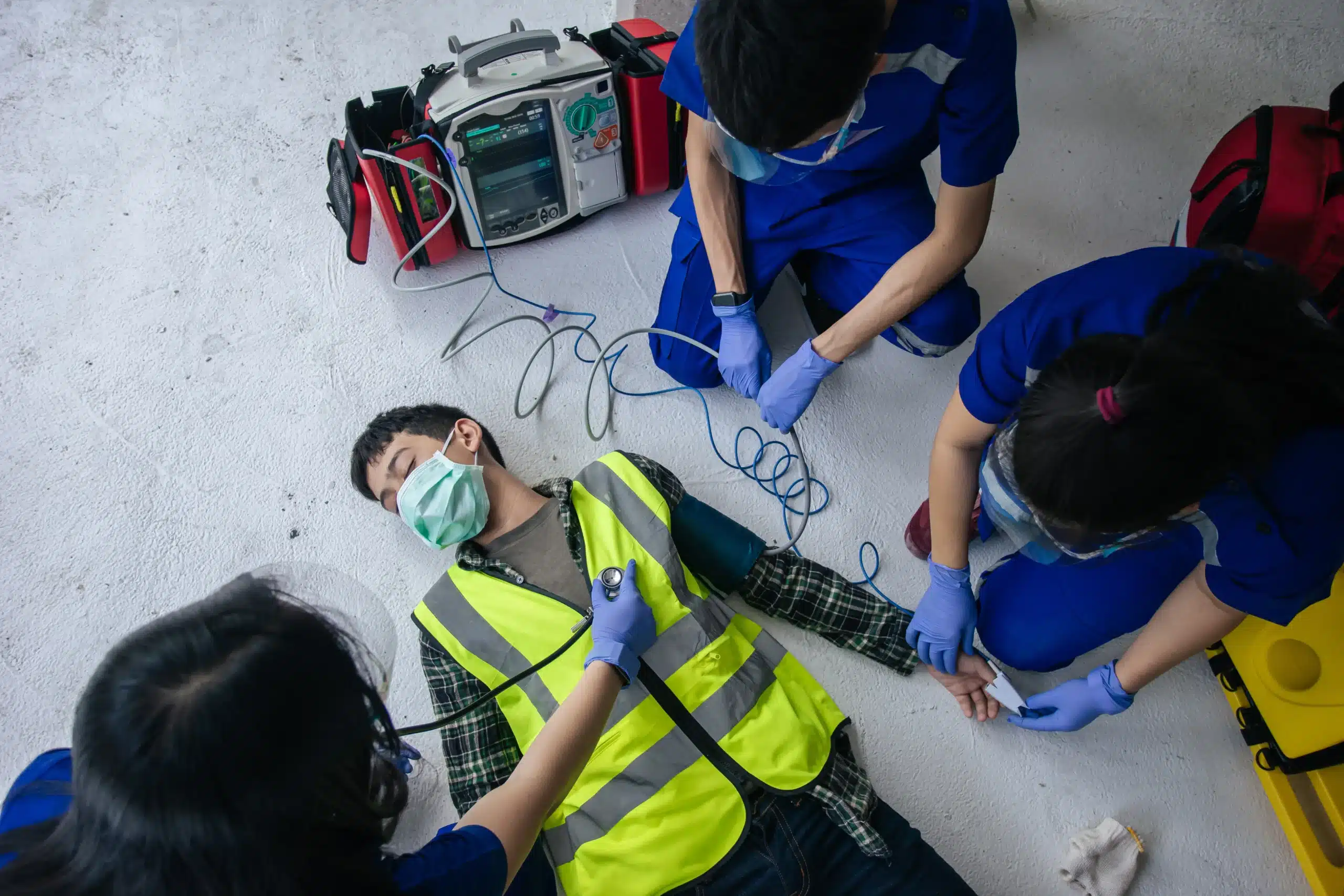Working with children in a healthcare setting is incredibly rewarding, but it also comes with a unique set of responsibilities. When a child’s life hangs in the balance, you need to be prepared to act quickly and decisively. That’s where Pediatric Advanced Life Support (PALS) training comes in. This specialized certification equips healthcare professionals with the advanced skills and knowledge necessary to respond effectively to pediatric emergencies. If you’re a healthcare provider in San Jose, or surrounding areas like Morgan Hill and Gilroy, and you’re looking to enhance your skills and confidence in critical situations, finding a reputable PALS provider is essential. This article explores the importance of pediatric advanced life support in San Jose and guides you through choosing the right training program for your needs. We’ll also discuss the benefits of PALS certification, course structure, cost, and resources available to support you on your journey to becoming a highly skilled pediatric emergency responder.
Key Takeaways
- PALS certification equips you with essential skills: Mastering PALS techniques empowers you to confidently manage pediatric emergencies, leading to improved patient outcomes and increased confidence in critical situations.
- Choose a PALS provider that meets your needs: Consider factors like AHA compliance, flexible scheduling, and a comprehensive curriculum when selecting a training center. Morgan Hill CPR Classes offers a convenient and affordable option with a low-price guarantee and daily classes.
- Maintain your certification and stay up-to-date: PALS certification is valid for two years. Complete renewal courses and explore continuing education opportunities to ensure you’re always prepared to provide the best possible care.
What is Pediatric Advanced Life Support (PALS)?
Pediatric Advanced Life Support (PALS) is a specialized program that teaches healthcare providers how to respond to life-threatening emergencies in infants and children. It focuses on managing cardiopulmonary arrest, shock, and respiratory emergencies, with an emphasis on early intervention and effective treatment. The goal is to give providers the knowledge and skills they need to quickly assess, stabilize, and treat young patients in crisis.
Core PALS Training Components
PALS certification training covers essential skills, from recognizing early signs of deterioration to performing advanced life support interventions. You’ll learn how to assess and manage conditions like shock, cardiovascular issues, and respiratory distress. The curriculum is designed specifically for healthcare professionals who regularly work with children, ensuring they’re prepared for various critical situations. Teamwork and communication are also key components, as effective emergency response often requires coordinated efforts. For those in the Morgan Hill, San Jose, and Gilroy areas, Morgan Hill CPR classes offer comprehensive PALS training that covers these core components.
Why PALS Matters for Healthcare Professionals
PALS certification is vital for any healthcare provider working with infants and children. It equips you with the skills to confidently manage pediatric emergencies, leading to better patient outcomes. Having this specialized training not only enhances your individual capabilities but also contributes to a higher quality of care within your team and facility. PALS-certified professionals are better prepared to respond effectively to a wide range of emergencies, ultimately making a real difference in the lives of their young patients. This specialized training can significantly impact your ability to provide effective care, as highlighted in this article on the importance of PALS certification.
Top PALS Providers in San Jose
Finding the right PALS provider is crucial for healthcare professionals. Here’s a look at some of the top options in San Jose:
Morgan Hill CPR Classes
Morgan Hill CPR Classes offers a comprehensive range of American Heart Association certifications, including BLS, ACLS, PALS, CPR, and First Aid. As a woman-owned business, they emphasize a supportive learning environment and offer a low-price guarantee. Convenience is key, with daily classes available in over 60 cities, making scheduling easier. They also offer discounts for group CPR classes. Serving Morgan Hill, San Jose, and Gilroy, their focus is on providing high-quality training at an accessible price. Review their course preparation page to get a head start.
American Heart Association Training Centers
The American Heart Association (AHA) directly offers PALS certification classes in San Jose through its training centers. These courses adhere to the AHA’s rigorous standards, ensuring participants receive top-notch instruction. Find AHA PALS courses in San Jose through their website. This direct approach ensures the curriculum is current and aligned with the latest guidelines for pediatric emergency care.
Emergency & Health Training Center
The Emergency & Health Training Center provides AHA-certified PALS courses, including convenient PALS renewal classes in San Jose. This focus on renewal courses makes it easier for healthcare providers to maintain their certification. These courses typically cover a condensed curriculum, focusing on key updates and skills practice.
San Jose CPR Certification
San Jose CPR Certification offers a variety of emergency medical training courses, including PALS certification. With daily classes available, they aim to provide flexible scheduling options. Their comprehensive approach to training ensures participants gain a well-rounded understanding of pediatric emergency care.
PALS Course Structure and Cost
Understanding the structure and cost of the PALS course helps you prepare for your certification journey. Let’s break down what you can expect.
Online Learning and In-Person Skills Testing
The PALS certification process blends online learning with hands-on practice. You’ll begin with a self-paced online component, which typically requires three to four hours to complete. This online portion allows you to learn the material at your own speed. After finishing the online section, you’ll schedule an in-person skills testing session. This practical evaluation, held at designated testing sites, usually takes about 30–40 minutes. This blended approach ensures you grasp the concepts and develop the necessary skills to respond effectively in pediatric emergencies.
Pricing and Discounts
The PALS course generally costs around $290. This fee covers both the online learning materials and the in-person skills testing. Your certification card is included upon successful completion of the course. Looking to obtain multiple certifications? Consider combined courses. For example, CPR and First Aid training are often available at a discounted rate, offering a cost-effective way to expand your skillset. Morgan Hill CPR Classes offers various discounts for group and combined courses.
Morgan Hill CPR Classes’ Low-Price Guarantee
Morgan Hill CPR Classes, a woman-owned American Heart Association Training Center, is committed to making high-quality training accessible. They offer a low-price guarantee on their courses, held daily in Morgan Hill. This commitment to affordability makes pursuing PALS certification easier for individuals in Morgan Hill, San Jose, and Gilroy. Convenient location and daily classes provide flexibility for busy professionals and students. You can prepare for your course by reviewing the course prep materials.
PALS Certification: Prerequisites and Materials
Pre-Course Work and Self-Assessment
Before your PALS certification class, you’ll need to complete some online pre-course work. This includes a self-assessment to check your readiness for the in-person training. It’s a helpful way to refresh your knowledge and see if there are any areas you might want to review before class. Make sure you bring the certificate showing that you’ve completed the video lessons and passed the self-assessment, along with your score. This is important for a smooth and successful learning experience. For tips and resources to help you prepare, visit Morgan Hill CPR Classes’ Course Prep page.
Essential Materials and Resources
You’ll need the current PALS Provider Manual, either as an eBook or paperback. This manual is a vital resource, so every student is required to have a copy. If you don’t have one already, you can purchase the PALS Provider Manual. As a bonus, you’ll receive a free keychain CPR training mask on the day of your course—a handy tool for practice and emergencies. If you’re part of a group, you might be eligible for a discount. Check out Morgan Hill CPR Classes’ Group Discounts for more information. Morgan Hill CPR Classes offers a low-price guarantee, so you can be confident you’re getting a great value. See their Low Price Guarantee page for details.
Benefits of PALS Certification
Earning your PALS certification offers significant advantages, from improved patient care to career growth. Let’s explore some key benefits:
Enhanced Pediatric Emergency Skills
PALS certification equips healthcare providers with the skills to confidently manage pediatric emergencies. The comprehensive training covers a wide range of critical situations, from respiratory distress and cardiac arrest to shock and post-resuscitation care. This specialized knowledge translates to better patient outcomes, giving you the tools to provide effective and timely interventions. Mastering these skills ensures you can deliver the highest standard of care when every second counts. For more insights, read this article on the importance of PALS certification.
Career Advancement
In the competitive healthcare landscape, PALS certification can open doors to new opportunities. Many employers seek professionals with this specialized training, recognizing its value in providing high-quality pediatric care. A PALS certification demonstrates your commitment to advanced skills and can be a deciding factor in promotions or new positions. It signifies a higher level of expertise, making you a more valuable asset to any healthcare team. This article on PALS certification further explores its benefits for career growth.
Increased Confidence in Critical Situations
Beyond technical skills, PALS certification instills confidence in healthcare professionals. Knowing you have the training and resources to handle complex pediatric emergencies reduces stress and allows for clearer decision-making under pressure. This increased confidence benefits not only the provider but also the patient and their family, fostering trust and a sense of security during challenging times. This article highlights how PALS training benefits nurses facing critical situations.
Choosing a PALS Course in San Jose
Finding the right PALS course can feel overwhelming with so many options in San Jose. Focusing on a few key factors will help you narrow your choices and select a program that fits your needs.
Evaluating Providers
When selecting a PALS course, prioritize reputable training centers with flexible schedules and diverse certification options. Look for a provider that offers combined CPR and first-aid classes, allowing you to build a comprehensive skill set. It’s also essential to verify the training center follows the latest American Heart Association guidelines and uses approved curriculum. Check for convenient locations and consider whether online or in-person learning (or a blend of both) best suits your learning style. Finally, read reviews from past students to understand their experiences. A little research upfront can make all the difference. For a comprehensive guide to CPR certification in San Jose, take a look at this helpful resource.
What Makes Morgan Hill CPR Classes Unique?
Morgan Hill CPR Classes stands out as a woman-owned American Heart Association Training Center, committed to accessible and affordable PALS training. They offer a low-price guarantee and daily classes in Morgan Hill, convenient for those also in San Jose and Gilroy. Their comprehensive approach ensures participants receive high-quality training that meets industry standards. They also offer the American Heart Association’s RQI program, a streamlined way for healthcare professionals to maintain their PALS certification. For more details on their courses, visit the Morgan Hill CPR Classes website.
Prepare for Your PALS Certification
Getting ready for your PALS certification involves more than just showing up on the day. Preparation is key to successfully completing the course and confidently applying these life-saving skills. This section offers practical advice and resources to help you get PALS certified.
Study Tips and Resources
Before your class, you must complete the required online pre-course work and pass a self-assessment. You can find the link to the pre-course work on the Morgan Hill CPR Classes website. You’ll also need your current PALS Provider Manual, available as an eBook or paperback. Consider purchasing the eBook for immediate access. Taking a PALS pretest can also highlight areas you might need to focus on. This extra step can significantly improve your understanding and retention of the material.
Address Common Challenges
There are some common misconceptions about PALS certification. One is that it’s the same as basic life support (BLS). While both are crucial, PALS focuses specifically on the advanced life support needs of infants and children. Another misconception is that experienced healthcare providers don’t need PALS certification. In reality, PALS certification ensures that all healthcare professionals maintain a standardized level of competency in pediatric emergency care, leading to better patient outcomes. This standardized training often incorporates simulation-based learning, allowing professionals to practice life-saving techniques in a safe and controlled environment. Morgan Hill CPR Classes offers the American Heart Association’s RQI program, a modern and efficient way for healthcare professionals to get their official AHA BLS, ACLS, and PALS certifications. This program emphasizes hands-on practice and skill mastery.
Maintain Your PALS Certification
Keeping your PALS skills sharp is crucial for providing the best possible care. This section covers how to maintain your PALS certification and explores continuing education options in San Jose.
Renewal Requirements and Process
Your PALS certification, granted by the American Heart Association (AHA), is valid for two years. To maintain your certification, you’ll need to complete a PALS renewal course before it expires. This ensures you stay current with the latest pediatric emergency care guidelines and best practices. The renewal course covers core concepts and updates, and successful completion grants you another two years of nationally recognized certification. For specific renewal requirements, check with your employer or the AHA. You can also prepare for your course by reviewing the materials on our course prep page.
Continuing Education in San Jose
San Jose offers various PALS continuing education opportunities. Several institutions, including hospitals and specialized training centers like Morgan Hill CPR Classes, provide PALS certification and renewal courses. We offer a low-price guarantee and discounts for group classes. The AHA’s Resuscitation Quality Improvement (RQI) program is another option for maintaining your BLS, ACLS, and PALS certifications. Many local CPR certification courses also cater to both healthcare providers and the public. For a comprehensive guide to CPR certification in San Jose, take a look at this helpful resource. You can find more information about our PALS courses on our website.
Support and Resources for PALS Participants
As a healthcare provider, juggling work, life, and continuing education can be a challenge. That’s why choosing a PALS provider that offers robust support and flexible options is essential. Let’s explore some key resources and support systems available to PALS participants, particularly those training with Morgan Hill CPR Classes.
Online Course Access and Free Materials
Morgan Hill CPR Classes understands the demands on healthcare professionals’ time. To streamline your PALS certification prep, they offer convenient online resources. Access course materials and other helpful information directly through their website. This allows you to study at your own pace and review key concepts whenever and wherever it’s convenient. They also offer a low-price guarantee, ensuring you receive high-quality, affordable training. They also provide several other American Heart Association certifications, including BLS, ACLS, CPR, and First Aid.
Flexible Scheduling
Beyond online resources, scheduling flexibility is crucial for busy professionals. Morgan Hill CPR Classes offers daily classes in over 60 cities, making it easier to find a time that works for you. Whether you’re in Morgan Hill, San Jose, or Gilroy, they have accessible locations to serve you. This commitment to accessibility is especially helpful for those balancing demanding work schedules or family commitments. Learn more about their course offerings and find a convenient schedule on their website. They also offer group discounts, making it a cost-effective option for teams. Prepare for your course with their helpful resources on course preparation.
PALS Certification’s Impact on San Jose Healthcare
PALS Certification significantly impacts San Jose’s healthcare landscape by equipping professionals with the skills to manage pediatric emergencies. This specialized training leads to better patient outcomes, stronger teamwork, and a higher standard of care within the San Jose medical community.
Improved Patient Outcomes and Satisfaction
PALS Certification empowers San Jose healthcare professionals to confidently handle pediatric emergencies. This training ensures they can respond effectively to various critical situations, directly improving patient outcomes. When providers have the necessary skills, they can deliver timely interventions, increasing positive outcomes for young patients. This proficiency builds trust and satisfaction among families. This article underscores PALS Certification’s importance in equipping healthcare providers with the skills to make a real difference. Another helpful resource discusses how PALS Certification enhances pediatric care quality.
Enhanced Teamwork and Communication
PALS Certification goes beyond individual skills; it emphasizes teamwork and communication—essential for effective emergency response. The training uses simulation-based exercises, letting professionals practice life-saving techniques in realistic environments. These simulations encourage collaboration and communication, refining coordination and decision-making under pressure. This article highlights how simulation training has become central to PALS Certification. Through these scenarios, providers develop a shared understanding of roles, leading to more efficient responses during real emergencies. PALS training focuses on early recognition, advanced techniques, and clear communication, enabling certified providers to play a crucial role in saving young lives. This emphasis on teamwork creates a more cohesive and supportive environment for healthcare professionals in San Jose.
Related Articles
- PALS Classes in Morgan Hill, CA – Morgan Hill CPR Classes
- CPR Certification in San Jose: Your Complete Guide – Morgan Hill CPR Classes
- First Aid Classes San Jose: A Complete Guide – Morgan Hill CPR Classes
- BLS Renewal San Jose: Your Easy Guide – Morgan Hill CPR Classes
- RQI Certification in San Jose: Your Complete Guide – Morgan Hill CPR Classes
Frequently Asked Questions
What is the difference between PALS and BLS? While both PALS and Basic Life Support (BLS) teach life-saving techniques, they cater to different age groups and situations. BLS focuses on fundamental CPR and first aid for all ages, while PALS delves into the specialized care required for infants and children. PALS addresses the unique physiological differences in young patients and covers advanced life support techniques specific to pediatric emergencies. Think of BLS as the foundation, while PALS builds upon that foundation with specialized knowledge and skills.
How long does it take to get PALS certified? The PALS certification process involves two main parts: online learning and in-person skills testing. The online component is self-paced and typically takes three to four hours to complete. Once you finish the online portion, you’ll schedule a brief in-person skills session, which usually lasts around 30–40 minutes. So, while the total time commitment varies, you can complete the entire process within a reasonable timeframe.
How much does PALS certification cost, and are there any discounts available? The PALS course generally costs around $290, covering both the online materials and the in-person skills testing. Your certification card is included upon successful completion. Many providers, including Morgan Hill CPR Classes, offer discounts for group registrations and combined courses (like CPR and First Aid). Check with your chosen provider for specific discount options.
What are the prerequisites for taking a PALS course? Before your PALS class, you’ll need to complete online pre-course work, including a self-assessment. This helps gauge your readiness for the in-person training. You’ll also need the current PALS Provider Manual (eBook or paperback). Bring the certificate showing you’ve completed the online portion and passed the self-assessment, along with your score, to your in-person skills session.
How do I renew my PALS certification? PALS certification is valid for two years. To renew, you must complete a PALS renewal course before your current certification expires. This refresher course covers essential updates and reinforces key skills. Check with your employer or the American Heart Association for specific renewal requirements. Many providers, including Morgan Hill CPR Classes, offer convenient renewal courses.

